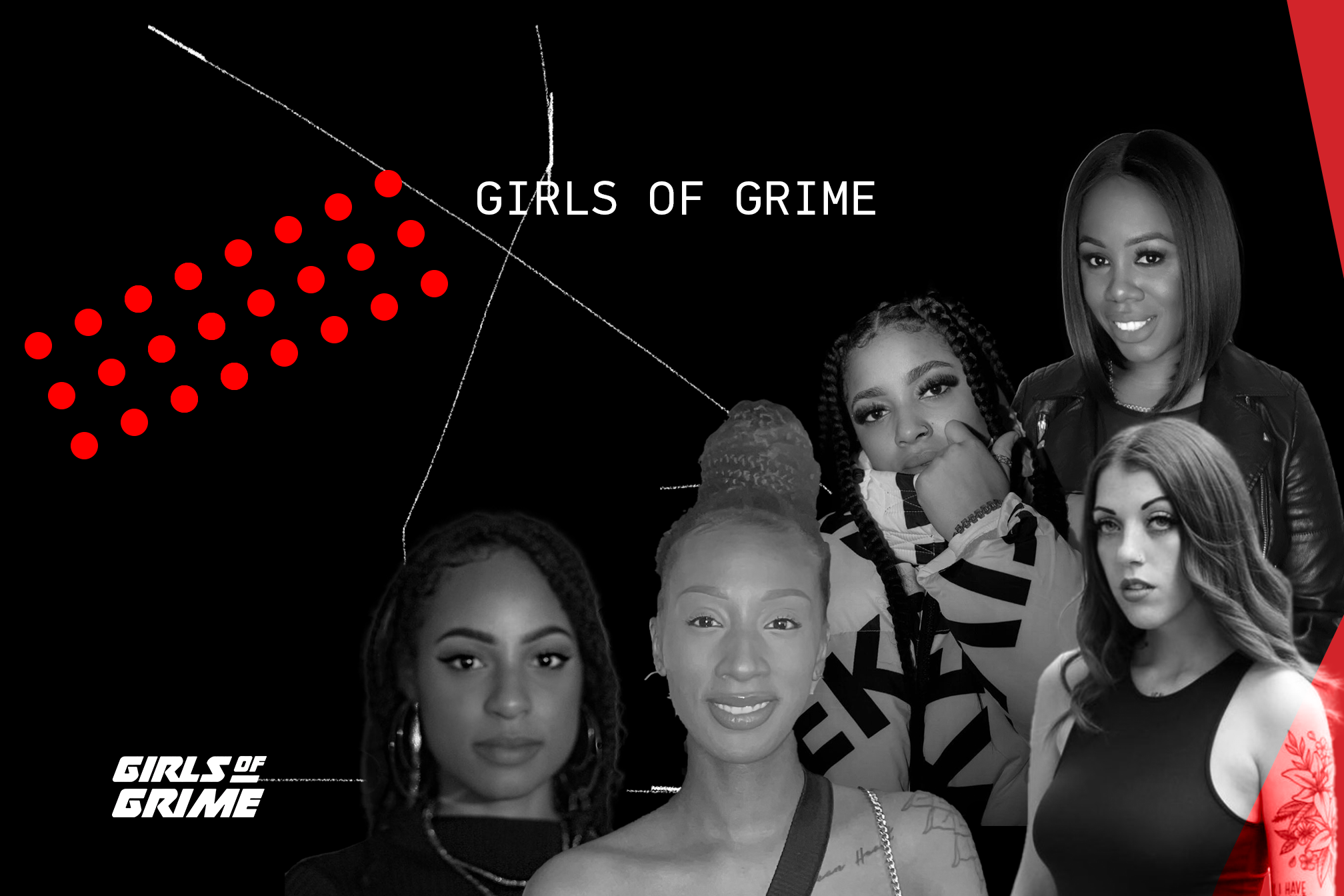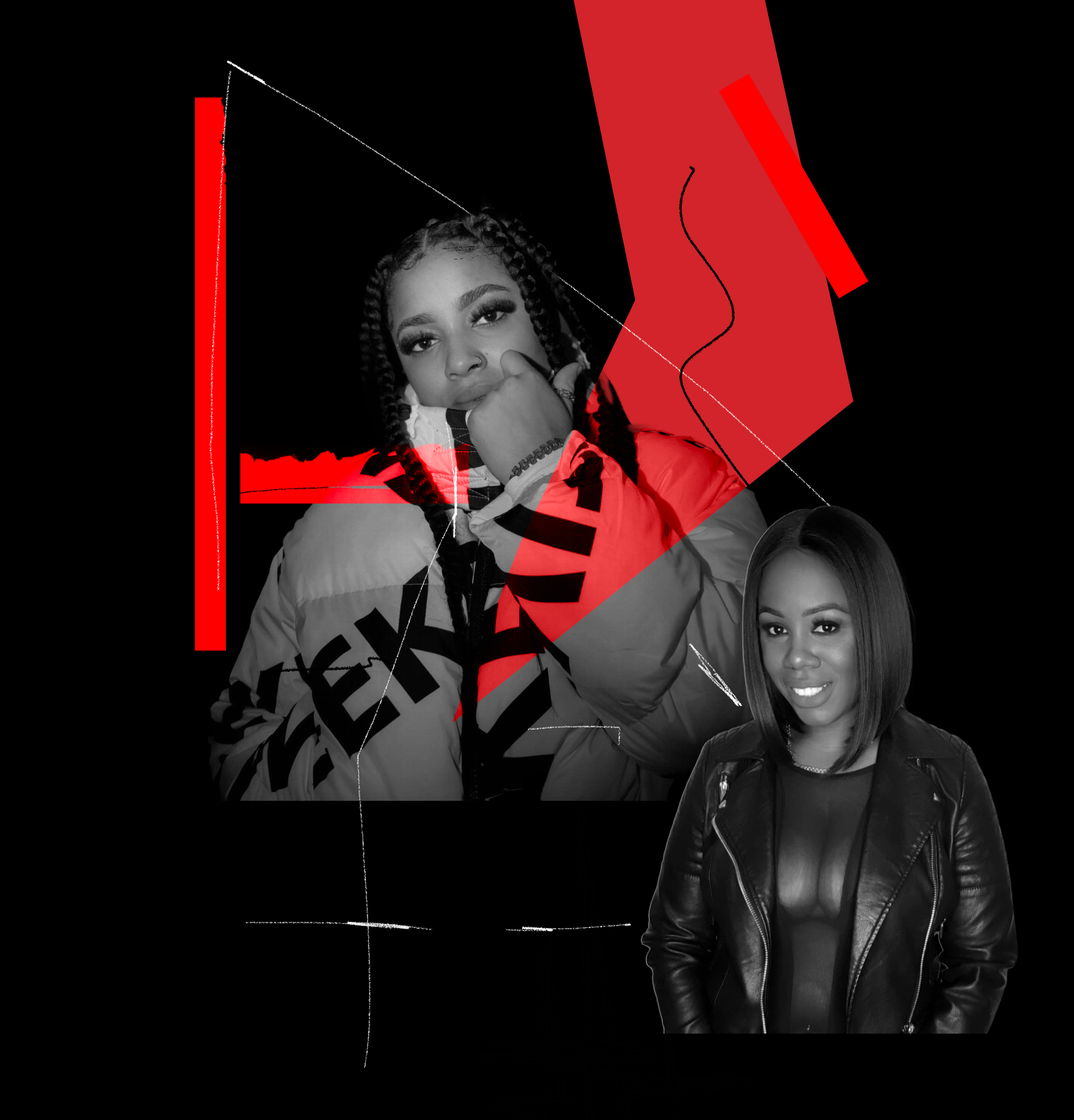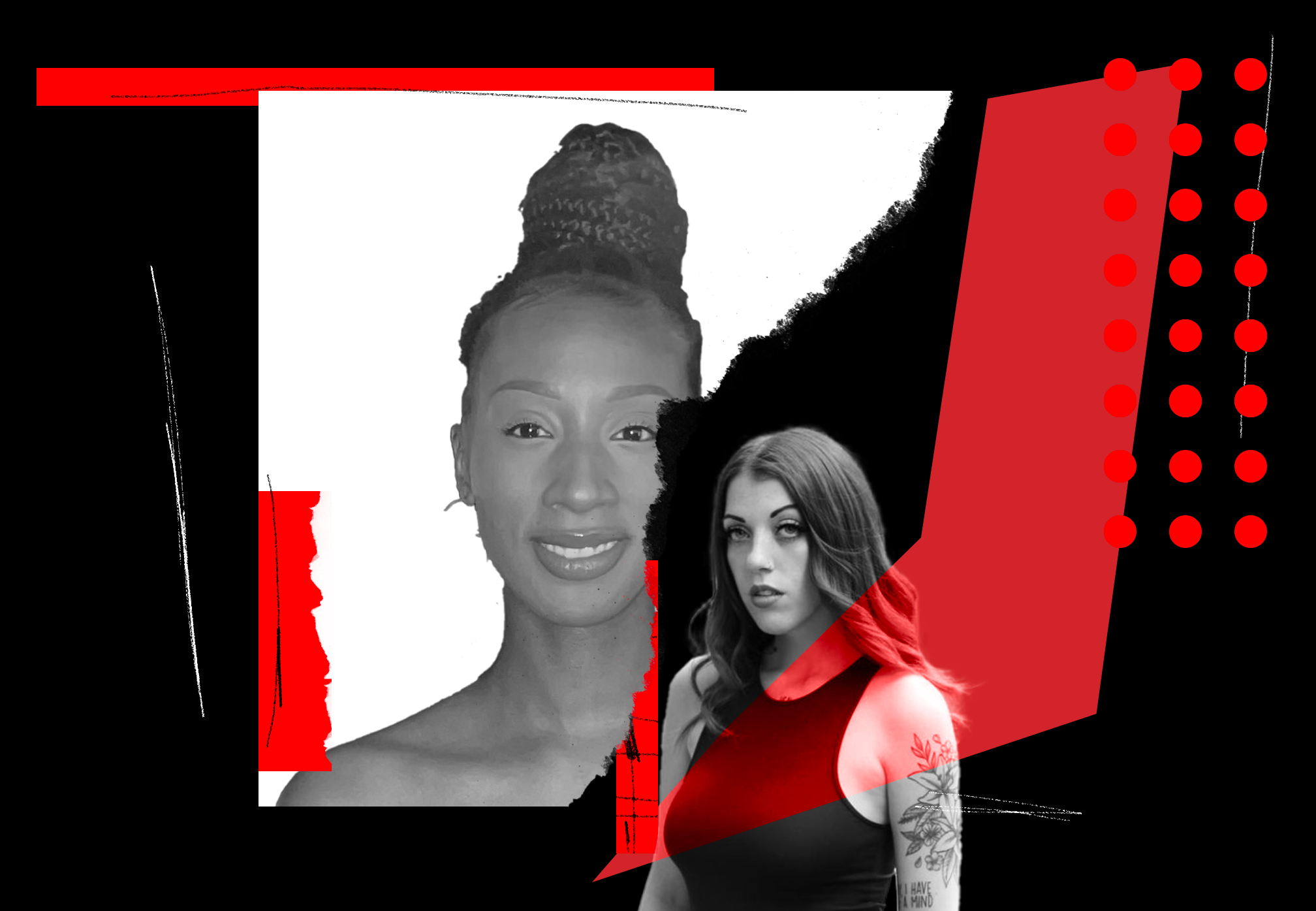 Features
Features
How GIRLSofGRIME are overturning imbalances in the UK rap scene
Tahirah Thomas speaks to GIRLSofGRIME, the platform and collective dedicated to supporting women in grime and rap
Despite being sidelined by an unwelcoming industry for too long, women are leading the way in the contemporary resurgence of grime music and taking the sound into the future. A shining light is in the movement is GIRLSofGRIME. As a collective of women who are passionate about creating space and representation for girls in rap music, GOG’s founding ethos is based around the idea that women in UK rap should “go where they’re celebrated, not merely tolerated”. Comprising artists, producers, DJs, industry execs, writers and broadcasters, GOG identify their organisation as being the “big sisters of the UK scene”, and work steadfastly to ensure that girls coming up in rap music feel accepted and heard in the scene through their their regular live events, networking masterclasses and via their online social platforms.
Over the past decade we’ve seen the genre of grime burst from the underground into the mainstream, through the pointed lens of its (predominantly male) legendary greats; namely the likes of Wiley, D Double E, Skepta, Ghetts, Chip and Stormzy. However, for the youth, now two generations removed, who cannot viscerally explain what it feels like to lose all semblance of decorum in a sweaty underground early 2000’s grime rave, the narrative of grime’s impact seems to have become all about how. While it may not be the most popular form of contemporary rap music in the UK currently, it has undoubtedly gone on to influence the current state of its genre-defying, UKG sampling, bass-slide-commanding successor, UK drill. Despite this, if you shift the lens towards women in the UK rap scene right now; the remnants of grime music’s golden days are taking on a new shape entirely.
Read this next: Why we started the Black Artist Database
Since Ms. Dynamite cemented two decades ago that female musicians are as integral to the scene as men are, we’ve seen a few generations of dynamic female-identifying rappers gain prominence in the UK. Still, with little to emulate when it came to feminine rap energy, (unlike the US, the UK didn’t quite have its own Lil’ Kim or Foxy Brown) this resulted in the reference point for women rapping in the UK being steeped in the grime movement and able to interpret in their own way. It’s due in part to this that every female rapper in the UK today has their own idiosyncratic sound and musical flair, with all the grittiness of grime bolstering their technical talents. In terms of the recognition relating to female rap in the UK, one only has to look to recent success of Lilttle Simz, a grime music veteran whose sound has evolved exponentially over the course of her career, winning a BRIT Award in 2022. However the fact this Best New Artist accolade came upon her fourth studio album 'Sometimes I Might Be Introvert' is indicative of how hard women in rap have had to work to gain this overdue respect.
Thus, when you critically unpack the shameful overlooking of female musicians in rap music in the UK over the past decade, it becomes easier to see why platforms such as the GIRLSofGRIME are absolutely integral to the further advancement of UK rap as a whole. So, we had a conversation with some of the key players from the GOG community to gain more insight into how the operation works behind the scenes, and thoughts on the bright future of UK music as a whole right now.

TAHIRAH: Hey Ladies! I think you’d agree that grime is a genre that’s often defined by its most explosive moments. Inherently, it’s a freestyling genre, a clashing genre and one that relies heavily on community-based initiatives. It’s also a genre that in its heyday was often defined by its DJs. The GOG platform has adapted to the digital age by bringing an audience of youth online. I want to know whether you think grime music will survive the digital revolution. As in, do you think viral grime moments can be as zeitgeist-shaking in comparison to in-person, crowd-based musical experiences?
SHAKIRA WALTERS, (GOG FOUNDER): I’ve always thought that grime is a genre of music that’s been pretty impossible for the mainstream to bottle up and sell to the masses. It’s about community, and best experienced in a live setting; it’s why the art of DJing is so integral to the movement. I mean the late Jamal Edwards (R.I.P) is testament to how integral digital media has always been to the advancement of the genre and with the shutting down of the world these past two years, and the lack of live opportunities, the digital world has became even more important. From the livestreams at Wiley’s Igloo to the virality of TikTok. We’re REALLY connected globally now, which opens the door to incredible once unimaginable opportunities. For GOG, over the lockdown period we received support from PRS Foundation to curate our debut LOCKED+LIVE series and also launched our GOG Radio with Mixcloud, which has opened us up again to wider international audiences.
TAHIRAH: Kaylee, could you tell me more about the origins of grime DJing and how integral DJ’s have been to the advancement of the scene?
KAYLEE (GOG DJ): Well, everything was on vinyl back in the day. So, grime producers would make a beat, get it pressed on vinyl and deliver it to record shops for artists to buy and use, which is such a nostalgic aspect of grime DJing culture. The record shops where you could meet people, network and talk about music with like-minded people. You also had to be quick if you liked a tune because only a few copies would get pressed, with the top DJs always getting to the best dubs first! A lot of the DJs who spun grime back in the day started on jungle, d’n’b and garage, and it was all about coming together with MCs in youth clubs, pirate radio or even someone's bedroom and having a rinse out; so DJs and MCs have coexisted in grime really well from the very beginning. I think the grime DJs' enthusiasm for obtaining exclusive beats and testing the reaction on the radio or in clubs has been a very important aspect in the advancement of the scene, and that rapport between grime’s MCs and grime DJs still remains. Even now, when I hear an old skool instrumental it reminds me of specific bars from specific MCs. To me, that’s the epitome of how integral DJs have always been to the scene.
Read this next: Ty and the history of UK rap
TAHIRAH: How has the genre of grime itself changed, shifted and adapted to remain contemporary over the years? I feel like we’re in an era of genre-hybridity, in that so many of the popular contemporary UK rap styles we’re hearing today draw constant reference from early grime music. How would you describe the era that grime music is in right now?
ARIEZ BABY (INDEPENDENT UK ARTIST): I’ve been listening to grime from a young age so its most probably where my music inspiration started, along with other genres like reggae and garage. Grime artists like Chip definitely influenced my flows and aggressive attack on tracks, and now as drill & real rap become one of the main sounds within the UK, I feel like the music I make is a fusion of these different sounds.
MIZ (GRIME ARTIST, FEMALE ALLSTARS): Yeah grime right now is in a strange and wonderful place! We have new artists popping up all the time, gaining popularity through the adoption and re-invention of legendary flows, instrumentals and sounds; the genre has 100% found a new balance. Today, UK rap, drill and grime are all intertwined in one way or another to create futuristic sounds inspired by artists from all backgrounds and walks of life. In that way, I'd say that grime at the moment is in a fresh new era, one that is reinventing the nostalgia of the genre whilst still keeping its unique signifiers close to home.
SHAKIRA: Grime has its roots firmly planted in the DNA of British culture and music - therefore it’s going nowhere. If anything, the lack of live opportunities for an extended time period has given artists working in grime the freedom to experiment with the genre a little more, through sampling and exploring the genre's nostalgic sounds. I guess you could say that music is fluid - especially in the digital age - and we can see this in the way that today’s emerging drillers are now rapping in grime flows without necessarily realising where that influence comes from. The rise of digital media and the resultant globalization of music has meant that grime is being exported worldwide and is garnering new fans all across the globe.

TAHIRAH: Miz, the ‘grime crew’ is a tradition that stems from the origins of the genre, from Roll Deep to BBK. What are the benefits of being in a grime crew as a female artist today?
MIZ: There are so many benefits! We’re a team, a support network, a group of individual artists all with a shared passion for grime music. We push each other to do better, recommend each other for opportunities and do everything we can to open doors for one another. We’re not just a crew, we’re a family.
TAHIRAH: Ariez, you’ve spent the last couple of years working closely with GIRLSofGRIME, what have you been up to and how has being a part of the GOG community impacted your musical career?
ARIEZ BABY: I first linked up with GIRLSofGRIME after releasing a couple freestyles on Instagram in 2019. They showed me love and were supporting from day one and I joined them for a set at Rinse FM. In a predominantly male industry, GOG made it so female voices could all be heard in one place. Posting women not only in the UK but internationally opens the doors for more features and it’s platforms like GIRLSofGRIME that really push upcoming artists like myself. GOG have really had a positive impact in helping push my music across various platforms. We’ve recently been working with GIRLSofGRIME on my latest release, a track called ‘Press It’ out now on GRM Daily. We collaborate with clothing brand Tar Street Sports on the visuals too & it’s only the beginning to what we have planned!
TAHIRAH: Kaylee, Would you say that playing grime as a woman in the contemporary music industry empowers you? If so, how and why?
KAYLEE: It definitely empowers me to play grime, but that’s due in part to the fact that I was so intimidated by it being such a heavily male-influenced genre in the beginning. I used to be so shy when I was on sets with guys in the beginning because I would think I wasn't skilled enough or that they wouldn’t respect me. Actually, those insecurities I felt in the beginning were so integral to me perfecting my craft. Nowadays, getting support and ratings from my male counterparts is also an empowering feeling - I can definitely stand amongst the boys! I also feel like if I can do it, every woman can.
Read this next: How misogynoir in the music industry has created a dangerous environment for Black women
TAHIRAH: Shakira, would you say GOG is an exclusively female community, or is everyone welcome to join the movement?
SHAKIRA: GOG is a female-led organisation, however it’s definitely not an exclusively female community, our socials, are evenly, split female to male. Quite proud of that to be honest. It’s equally important to engage and show love to the men in the scene who respect our work, as it is about platforming the women we do! The whole point of our existence is to create a balance. We’re also very mindful about not pigeonholing the acts we work with into a female-only category, so encourage collaborations & skill sharing opportunities as well.
TAHIRAH: To wrap up, Shakira, what’s the future saying for the GOG community? Where are you all hoping to take the movement this year and into the future?
SHAKIRA: A major stumbling block right now is the pathway to progression for many female rappers is the inability to ensure they’re able to release music consistently. Plus the barriers for entry for artists into the industry are so heavily guarded, and the music business infrastructure is challenging. So GIRLSofGRIME is now largely focused on creating our own talent development pathway to support the next generation of rising female UK rappers, DJs, creatives etc. Fortunately, last year through our partnership with The Arts Council we were able to support artists C Cane, Ariez Baby, Lauren Marshall and will continue our one-to-one DJ tutorial sessions as well. We’re also aiming to collaborate more closely with female executives and music managers, and other female-led platforms to build even stronger networks across the industry too.
Tahirah Thomas is a freelance writer, follow her on Instagram


